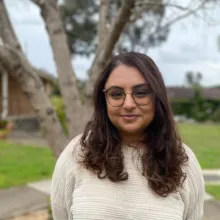
Health and Identity Lab
Our research examines the ways our mental and physical health are shaped by our social relationships and social connectedness.
Research themes
About
Our research examines the ways our mental and physical health is fundamentally shaped by our social relationships and social connectedness. A particular focus of our work is on the vital role of the social groups in determining health outcomes. Social identities are those groups to which we subjectively belong, and consider an important part of who we are.
In our research, we use a diverse array of research designs including lab and field-based experiments, intensive longitudinal studies, qualitative investigations with vulnerable communities, and randomised controlled trials. Through this varied and flexible approach, we contribute to efforts to find solutions to problems of national and global significance. For instance, we investigate the role of discrimination, poverty, and loneliness in contributing to mental illness and health inequality. We investigate the factors that drive peoples’ engagement in behaviours that enhance health (e.g., physical activity and healthy eating), as well as behaviours that can harm health (e.g., risky behaviours such as binge drinking and drug taking). Our research also focuses on designing, implementing, and testing theory-driven health interventions.
We work with diverse populations and in a wide array of contexts. These include young people at mass gatherings, members of sports teams and exercise groups, retirees, people experiencing depression, trauma or chronic illness. Our lab has also worked in partnership with 20 different community organisations, and over 150 researchers across 14 countries. We have particularly strong links with the University of Queensland, University of Exeter, University of Otago, Bournemouth University, and University of Edinburgh.
Publications
| Campbell, P., Edwards, B., & Gray, M. (2025). Exposure to multiple natural disasters and externalising and internalising behavior: a longitudinal study of adolescents. Journal of Adolescent Health, 76(1), 89-95. https://doi.org/10.1016/j.jadohealth.2024.08.019 |
| Chen, S., Cárdenas, D., Zhou, H., & Reynolds, K. J. (2024). Positive school climate and strong school identification as protective factors of adolescent mental health and learning engagement: A longitudinal investigation before and during COVID-19. Social Science & Medicine, 348, 116795. https://doi.org/10.1016/j.socscimed.2024.116795 |
| Crimston, C. R., Jetten, J., & Selvanathan, H. P. (2024). “Fight like hell”: Projected moral polarisation predicts anticipated conflict and the perceived responsibility to overturn an election loss. Group Processes & Intergroup Relations, 27(7), 1712-1734. https://doi.org/10.1177/136843022312238 |
| Cruwys, T., Corkin, N., & Pasalich, D. S. (2024). Reduced Identification as a Mother Mediates the Effect of Prenatal Risk Factors on Mother and Infant Socio-Emotional Functioning. Journal of Child and Family Studies, 33(4), 1198-1210. https://doi.org/10.1007/s10826-024-02808-z |
| Cruwys, T., Haslam, S. A., & Skorich, D. P. (2025). Disorders of self-categorization: How and why a healthy social self-system is the cornerstone of mental health. Psychological Review. https://doi.org/10.1037/rev0000566 |
| Cruwys, T., Haslam, S. A., Steffens, N. K., Haslam, C., & Reicher, S. D. (2025). Nothing is so impactful as good theory: Evidence for the impact of the social identity approach to health on policy and practice. Social Science & Medicine, 118164. https://doi.org/10.1016/j.socscimed.2025.118164 |
| Cruwys, T., Macleod, E., Curll, S., Walker, I., Kurz, T., Western, K., ... & Greenwood, L. M. (2025). Is trauma isolating, or does isolation traumatize? Loneliness and posttraumatic stress mutually reinforce one another in the aftermath of environmental disaster. Psychological Trauma: Theory, Research, Practice, and Policy. https://doi.org/10.1037/tra0001895 |
| Cruwys, T., Macleod, E., Heffernan, T., Walker, I., Stanley, S. K., Kurz, T., ... & Calear, A. L. (2024). Social group connections support mental health following wildfire. Social psychiatry and psychiatric epidemiology, 59(6), 957-967. https://doi.org/10.1007/s00127-023-02519-8 |
| Cruwys, T., Selwyn, J., Rathbone, J. A., & Frings, D. (2024). Discrimination and social identity processes predict impairment and dysfunction among heavy drinkers. Social Science & Medicine, 343, 116549. https://doi.org/10.1016/j.socscimed.2023.116549 |
| Donaldson, J. L., Cruwys, T., Dawel, A., & Chen, J. (2024). Multiple group memberships protect against anticipatory anxiety for social situations. Journal of Community & Applied Social Psychology, 34(1), e2713. https://doi.org/10.1002/casp.2713 |
| Donaldson, J. L., Robertson, A. M., Cruwys, T., Rathbone, J. A., Haslam, C., Chen, J., & Dawel, A. (2025). An intervention to build social identities improves mental health and wellbeing in people with elevated social anxiety: Evidence from a single‐arm clinical trial. British Journal of Clinical Psychology. https://doi.org/10.1111/bjc.12539 |
| Guillermo-Tregoning, G., & Stevens, M. (2025). How tough should the love be? The effect of varying levels of descriptive norm feedback on performance and maximum heart rate during an exercise task. Psychology of Sport and Exercise, 102922. https://doi.org/10.1016/j.psychsport.2025.102922 |
| Huang, T., Zhou, H., Jones, L., & Cong, C. W. (2024). Us or them: How COVID‐19 vaccine priority influences perceptions of local‐migrant worker relations. Asian Journal of Social Psychology, 27(4), 995-1010. https://doi.org/10.1111/ajsp.12653 |
| Javier, C., Maxwell, C., Atkin, T., Crimston, C. R., & Barlow, F. K. (2024). Barriers reported by nonbinary adults when accessing gender-affirming medical treatments: A systematic scoping literature review. Psychology of Sexual Orientation and Gender Diversity. https://doi.org/10.1037/sgd0000702 |
| Lee, G. C., Platow, M. J., & Cruwys, T. (2024). Listening quality leads to greater working alliance and well‐being: Testing a social identity model of working alliance. British Journal of Clinical Psychology, 63(4), 573-588. https://doi.org/10.1111/bjc.12489 |
| McCluskey, T., & Stevens, M. (2024). The effect of esteem support on rebound resilience during cycling time trials and an examination of potential mechanisms. Sport, Exercise, and Performance Psychology. https://doi.org/10.1037/spy0000374 |
| Proulx, J. D., Castaneto, K. K., Cash, T. A., & Aknin, L. B. (2025). A narrative review of the consistency, rigor and generalizability of experiments on prosocial behaviors and happiness. Discover Psychology, 5(1), 10. https://doi.org/10.1007/s44202-025-00327-6 |
| Rathbone, J. A., Cruwys, T., Western, K. A., Donaldson, J. L., Haslam, C., Rieger, E., ... & Dugdale, P. (2025). Tackling Loneliness, Ineffective Social Support, and Mental Ill‐Health Among People With Higher Weight. Health Expectations, 28(2), e70192. https://doi.org/10.1111/hex.70192 |
| Rathbone, J. A., Smyth, L., & Cruwys, T. (2024). A mixed-methods investigation of weight bias reduction in medical students. Fat Studies, 13(3), 319-337. https://doi.org/10.1080/21604851.2024.2409584 |
| Robertson, A. M., Cruwys, T., Quayle, A., Stevens, M., Platow, M. J., & Scholz, B. (2025). Goldilocks disclosures: A qualitative exploration of when therapist self-disclosure of lived experience is “just right”. Psychological Services. https://doi.org/10.1037/ser0000959 |
| Robertson, A. M., Cruwys, T., Stevens, M., & Platow, M. J. (2025). Leading by example: Experimental evidence that therapist lived experience disclosures can model the path to recovery for clients. British Journal of Psychology. https://doi.org/10.1111/bjop.12759 |
| Stevens, M., Cruwys, T., Olive, L., & Rice, S. (2024). Understanding and improving athlete mental health: A social identity approach. Sports Medicine, 54(4), 837-853. https://doi.org/10.1007/s40279-024-01996-4 |
| Western, K. A., Cruwys, T., & Evans, O. (2024). Identifying as a Survivor Versus a Victim After Sexual Violence Predicts Divergent Posttrauma Pathways. Violence Against Women, 10778012241279817. https://doi.org/10.1177/10778012241279817 |
Projects
Members
Researcher
Postdoctoral Fellow (Health & Identity Lab, T Cruwys Research Group Psychology)














